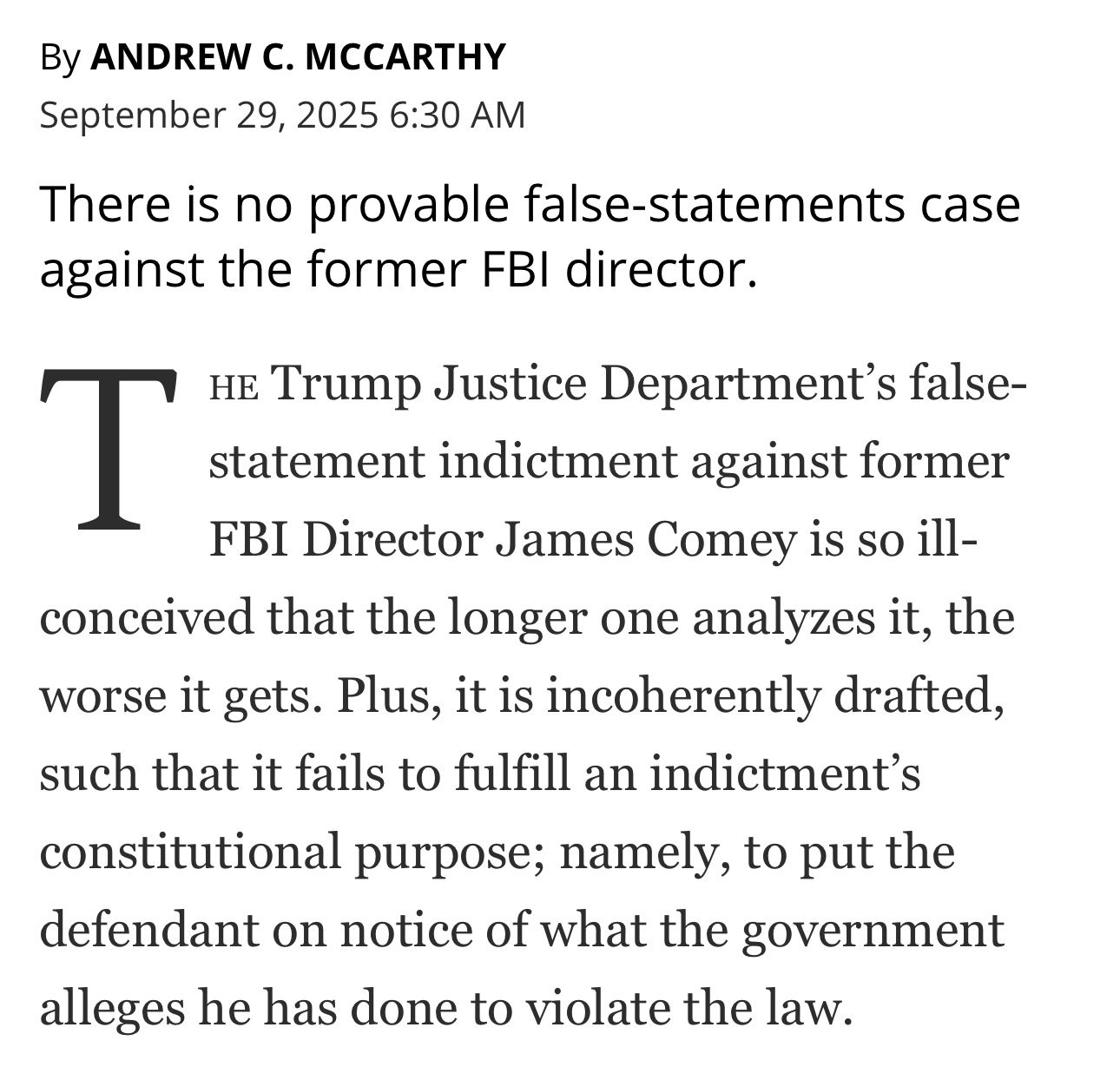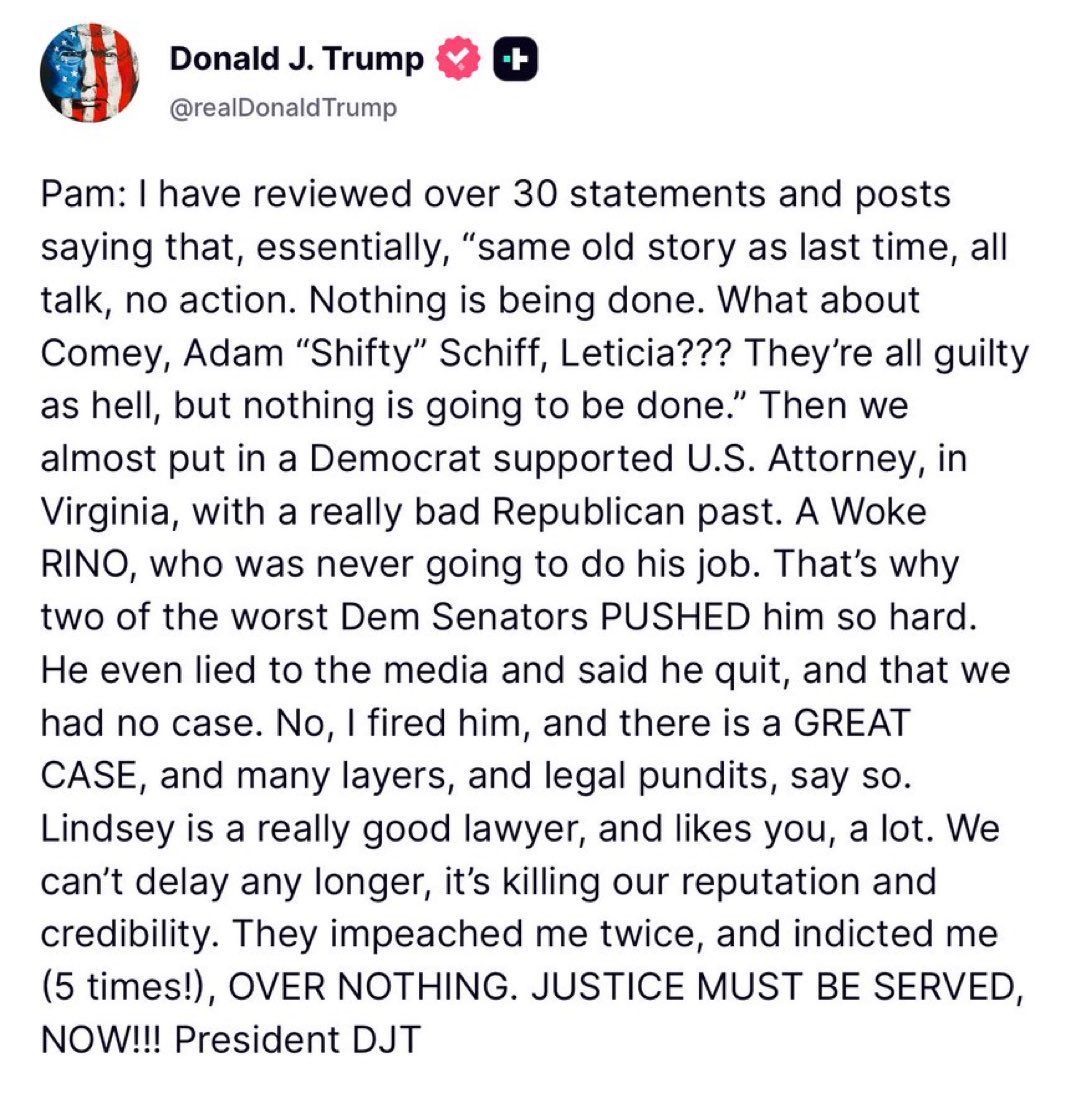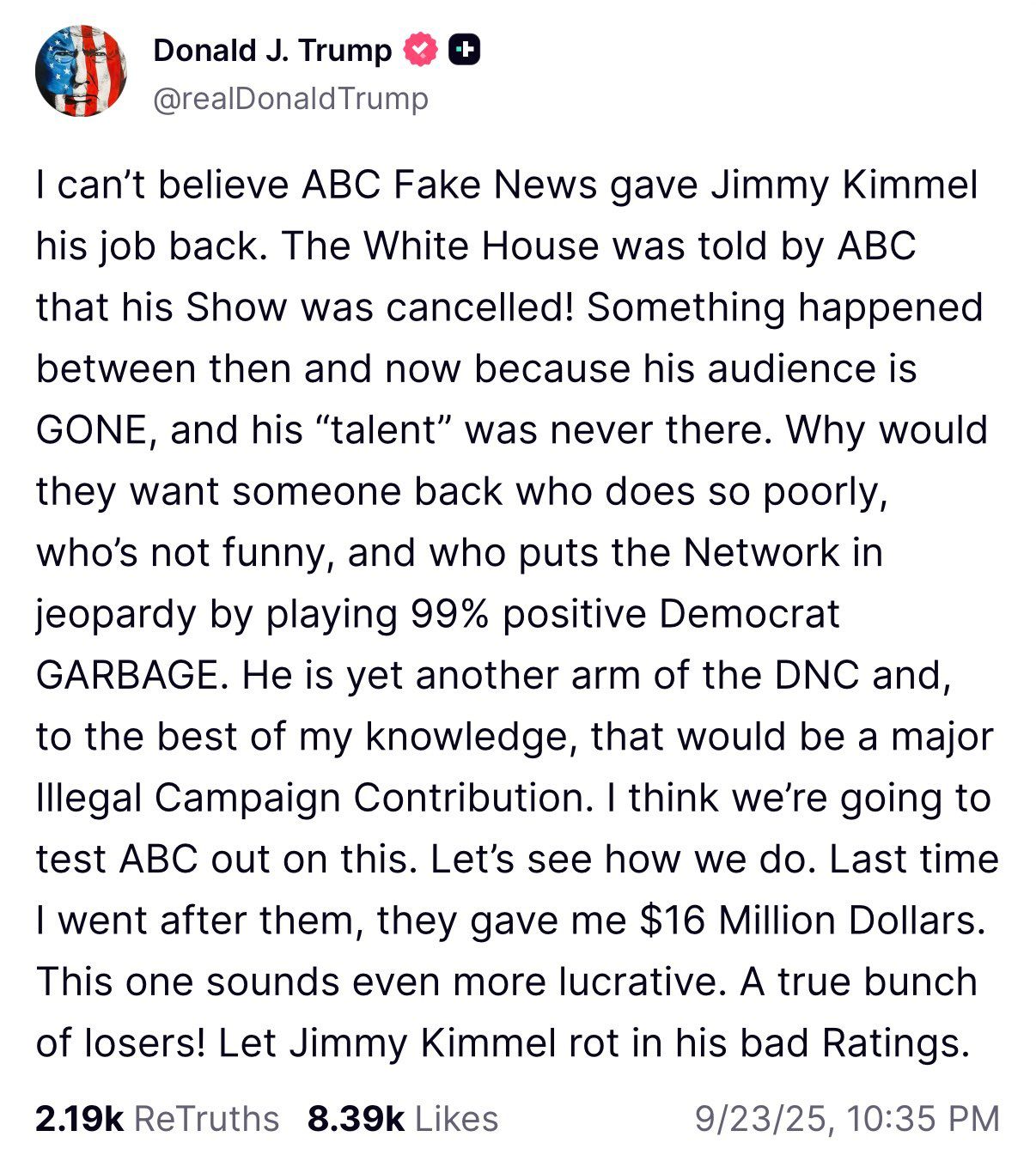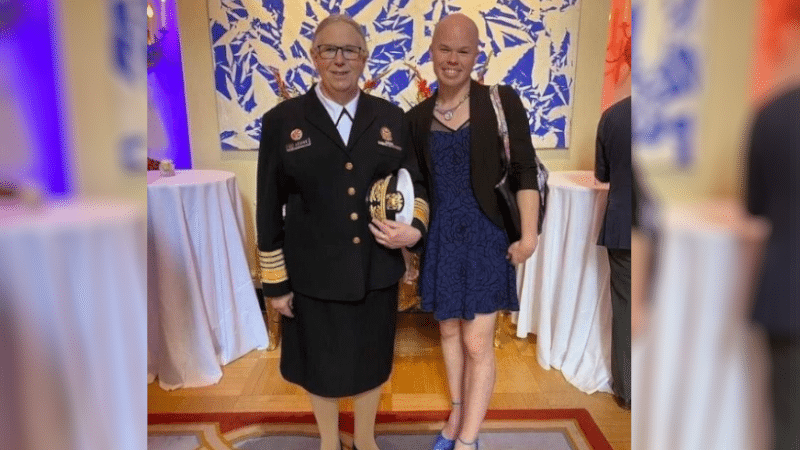This week in lawfare
-
Trump forces out federal prosecutor who says there’s not enough evidence to charge Letitia James with a crime.
-
A federal grand jury indicted former FBI Director James Comey on Thursday, approving charges for a top foe of the White House just days after President Trump called for his prosecution.
Comey was indicted on charges of making a false statement as well as another for obstruction of a congressional proceeding in connection with testimony he gave before the Senate in 2020.
-
The focus on Comey stems from his congressional testimony on Sept. 30, 2020, with the charges coming just days ahead of the five-year statute of limitations on such matters.
So the public command to Bondi to get going, was probably just theater from Trump. Both he and Bondi knew this was coming.
And even in that story we see that the grand jury is not a puppet of Trump, as they declined to indict on some of the charges.
It's possible, just possible, that Comey actual broke some laws.
-
I find it a bit weird that Trump is going after someone for being dishonest and obstructing a congressional procedure. My guess is there won't be enough evidence to prove Comey said anything under oath that was explicitly inaccurate, but I have no idea the burden of proof required for these things. Former President Sarkozy just went to jail for 5 years... maybe the French know something we don't.
-
Meet Lindsey Halligan, the 36-year-old former Miss Colorado hopeful who only worked 3 federal cases before Trump promoted her to U.S. attorney
Lindsey Halligan, 36, was sworn in as interim U.S. attorney for the Eastern District of Virginia on Monday, taking over one of the most significant prosecutorial offices in the country despite having no experience as a prosecutor at any level. The appointment comes after President Donald Trump forced out her predecessor, Erik Siebert, for refusing to pursue charges against New York Attorney General Letitia James and former FBI Director James Comey.
Halligan’s rapid ascension from Florida insurance lawyer to federal prosecutor represents a stark departure from traditional Justice Department hiring practices. Court records show she has participated in only three federal cases throughout her career, all while serving as one of Trump’s personal attorneys. By contrast, Siebert, whom she replaced, was listed as an attorney on 675 federal cases during his extensive prosecutorial career.
-
Oddly enough, I knew exactly what she was going to look like before I Googled her.
-
Other than that, what do you think about the indictment, Mr McCarthy?

-
I suspect she’ll get fired and replaced with another of trump’s personal lawyers.
https://www.yahoo.com/news/articles/top-prosecutor-refusing-charge-york-175756222.html
-
Wow. Trump publicly ordering his AG to arrest his enemies, even after prosecutors say there’s no there there.

said in This week in lawfare:
Wow. Trump publicly ordering his AG to arrest his enemies, even after prosecutors say there’s no there there.


